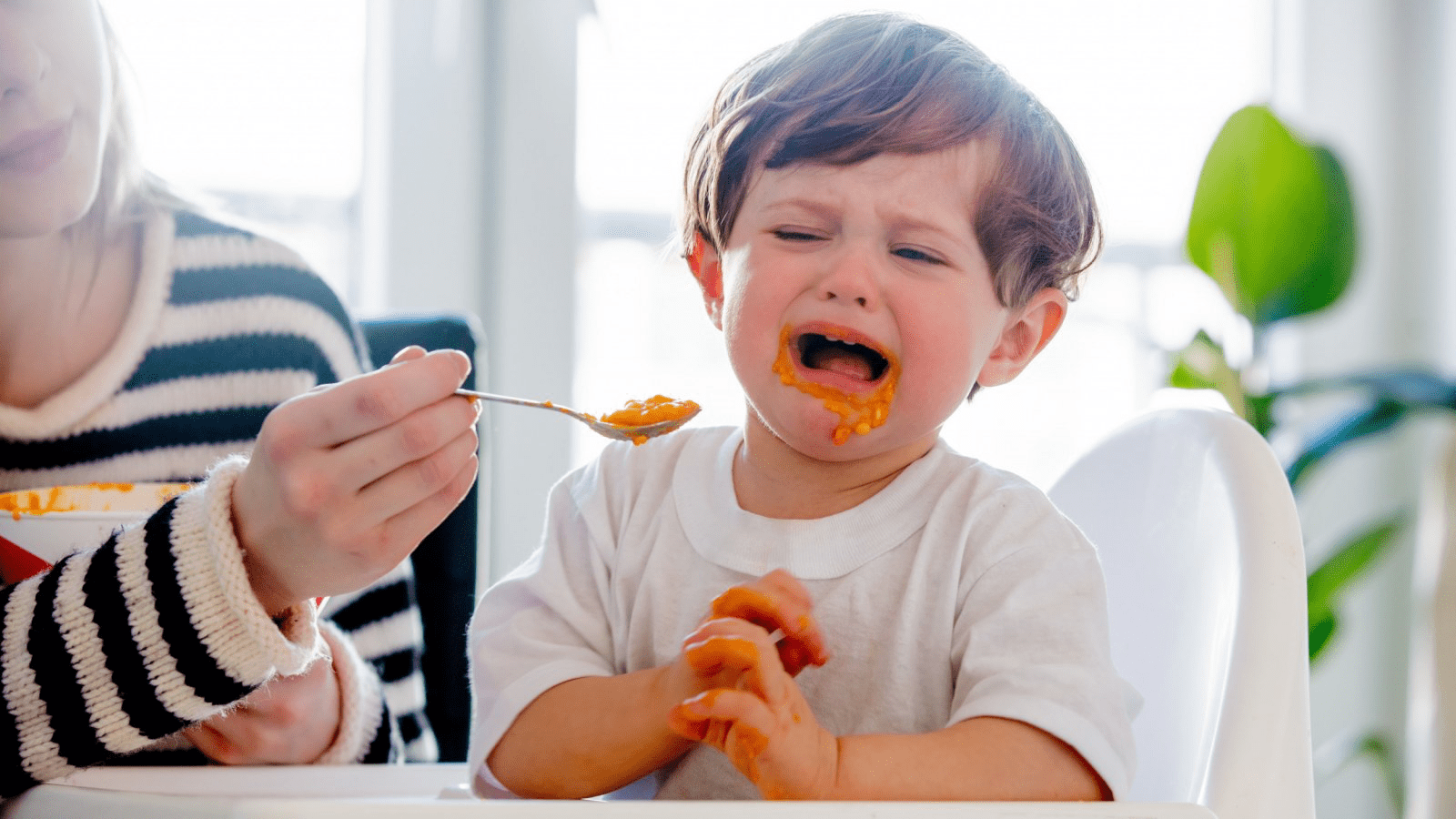
- Avoid forcing them to eat
- Family mealtimes are essential
- Avoid criticising your child’s eating habits
- Be a good role model
- Treats are fine in moderation
- Involve them in your grocery shopping trips
Toddlers have unpredictable eating habits. They may not eat often. Sometimes they eat all day. They may want one dish for weeks, then dislike it. Your child’s eating habits may vary from others. Calm down a bit.
It is not surprising that most of us were picky eaters as toddlers. It is one aspect of our lives over which we’ve had some authority as children. Your child is exercising their independence by refusing to eat.
We aren’t born craving french fries, pizza, broccoli or carrots. We get conditioned to eat more unhealthy foods. The sooner you offer healthier foods to a child, the easier it will be for them to create a good connection with food.
A balanced diet may help your kid maintain a healthy weight, reduce stress, improve their brains, and prevent health problems. Here are some tips to help you educate your children on good eating habits:
1/ Do not force them to eat

Imagine how agitated you’d become if someone were to force you to eat something that you don’t like. It sure would make most of us infuriated. The same goes for children; forcing them to eat will only annoy them and lead to food-related tantrums.
Our bodies are excellent at letting us know when we’re hungry or full. Pressuring your children to eat when they don’t want to may disturb this. We want to encourage children to eat when hungry and stop when full.
Eating should be a fun activity for your child that fulfils a basic need. Rather than forcing your child to consume the quantity of the food you have portioned for them, take comfort in knowing that they have eaten as much as they want and are satisfied.
2/ Family mealtimes are essential

It’s never too early to start healthy-eating chats with your children, and continuing such conversations at every stage can help build lifelong healthy habits. I’d never know how delicious most of the fruits, vegetables, and fish are if it weren’t for the family mealtimes we’d have when I was a child.
Experts say that sitting down with your family helps them deal with the strains and inconveniences of everyday life. Eating together promotes healthy eating habits, helping families maintain weight.
Children are more likely to have good manners and stronger communication abilities, too, as your child can practise social skills at the dinner table. It’s a great way to boost your child’s self-esteem since it shows you appreciate and respect them.
3/ Avoid criticising your child’s eating habits

We’ve all been there. Friends, relatives, or even worse, parents body-shaming their kids. I wouldn’t be comfortable imagining children in a culture where they’re not accepted because of their diet and appearance. This isn’t America’s Next Top Model.
Body shaming may harm individuals of all ages’ mental health, including social anxiety, depression, and eating disorders. Your child may think restricting their food intake would transform their looks and end body shaming.
Melainie Rogers, CEO of NYC-based eating disorder treatment clinic BALANCE, says we can educate kids about a healthy diet by emphasising that our bodies require sustenance to grow and prevent disease, enabling us to exercise, feel good, and be exhausted.
Rogers also recommends saying phrases like “veggies make us feel healthy” instead of “eat your veggies, or you will become fat”, and “it will help you grow, and give you the energy to play with your friends,” or “it will prevent you from getting sick and having to stay home in bed,” rather than “you are getting fat, and you need to eat properly.”
4/ Be a good role model

The only reason my six-year-old nephew eats fruits and veggies is that he imitates his health-conscious parents. Children acquire habits and behaviours from others like sponges. You may be a good or bad influence on your children’s eating habits. Your kids will believe dieting or overeating is generally based on what they see you do.
Children whose parents eat more fruits and vegetables tend to eat more of these items themselves, while children whose parents eat more savoury snack foods tend to eat more.
What your kids eat over time matters most. Life’s pleasures include cinema, popcorn and ice-cream sundaes. Your kids will be OK if you balance these indulgences with a healthy diet and exercise.
5/ Treats are fine in moderation

We all know that children can’t get enough candy, cookies, and sweetened beverages. But, research says, don’t blame the kids: it’s biology. Children have very sophisticated biology that makes them like the primary taste of mother’s milk and then crave high-calorie foods when growing.
When they grow, they like to eat foods high in calories. In the past, fruits like dates and honey used to be popular choices. Now, kids live in places where there’s sugar everywhere!
Allowing them to consume sugary, low-nutrient items like cakes, soda, cookies, and their favourite fast food on occasion keeps them from being forbidden food, and thus, more alluring.
That is not to argue that a child cannot overdo it. Sugar cravings are no longer the evolutionary benefit they once were in a modern world of calorie overload and childhood obesity. If you’re trying to get your kids to consume less sugar, paediatricians say the first step is understanding why they’re doing it.
6/ Involve them in your grocery shopping trips

Taking your kids grocery shopping will increase their excitement for upcoming meals and snacks since they will feel like they had a hand in the decision. Include them in meal planning and preparation whenever you can.
My nephew enjoys going to the grocery store with his mum, and he often follows her to the kitchen to ask about the ingredients used in her cooking while picking and tasting a few items as he speaks about the food he likes or dislikes.
Asking children to choose recipes or dishes they want to help buy and prepare is a terrific way to get them interested in cooking (and eating).
Don’t worry too much about your child’s diet. Nutrition monitoring takes time.
Parents are often under pressure to stress their children’s diets or compare them to those of other kids. Paediatricians advise you to be decisive about what’s best for your family and not worry about others.
Even though it’s essential to keep an eye on your child’s development chart, focus on raising a healthy, happy child instead of a scale number. This is especially true for nervous parents.
Leave a comment below and let us know how you keep your children’s food and health in check!









